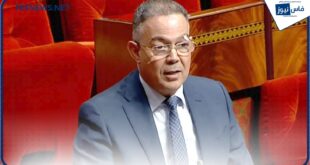In the latest session of the House of Representatives, a heated debate unfolded between Minister of Education Mohamed Said Barada and Ahmed El Abadi, a deputy from the Socialist Progress Party, over the government’s decision to set the maximum age for entering the teaching profession at 30 years. This decision has sparked widespread controversy, with some viewing it as a step toward improving education quality, while others see it as a restriction on young people’s access to public sector jobs.
During the session, Minister Barada strongly defended the decision, stating that it aligns with efforts to enhance the quality of the educational system and stimulate the teaching profession. He explained that the age cap is a necessary measure aimed at “improving the educational system” by selecting the best-qualified young specialists in various educational fields. He highlighted that the large number of applicants for the 2024 teaching exams—120,000 candidates—demonstrates significant interest among youth aged 23 to 28 in pursuing teaching careers.
The minister added that most successful candidates possess high academic qualifications, particularly bachelor’s and master’s degrees. “We aim to provide the best possible educational conditions for Moroccan students, which is why we insist on selecting the most competent teachers,” he said.
On the other hand, Ahmed El Abadi criticized the age cap decision, arguing that it contradicts the Moroccan Constitution’s principles of equality in access to public sector jobs. He described the policy as “illegal” and a clear violation of the “equal opportunity principle” enshrined in the General Statute of Public Service. He also pointed out that the decree governing employment in regional academies sets the age range for eligibility at 18 to 40 years.
El Abadi further argued that the government fails to provide viable alternatives for university graduates over 30, leaving them with limited options: seeking employment in the private sector, which often requires different qualifications, or continuing to search for work amidst high unemployment rates. He warned that “this decision exacerbates social problems in the context of widespread youth unemployment, particularly in regions lacking adequate education and training opportunities.”
source : fesnews media
 فاس نيوز ميديا جريدة الكترونية جهوية تعنى بشؤون و أخبار جهة فاس مكناس – متجددة على مدار الساعة
فاس نيوز ميديا جريدة الكترونية جهوية تعنى بشؤون و أخبار جهة فاس مكناس – متجددة على مدار الساعة













